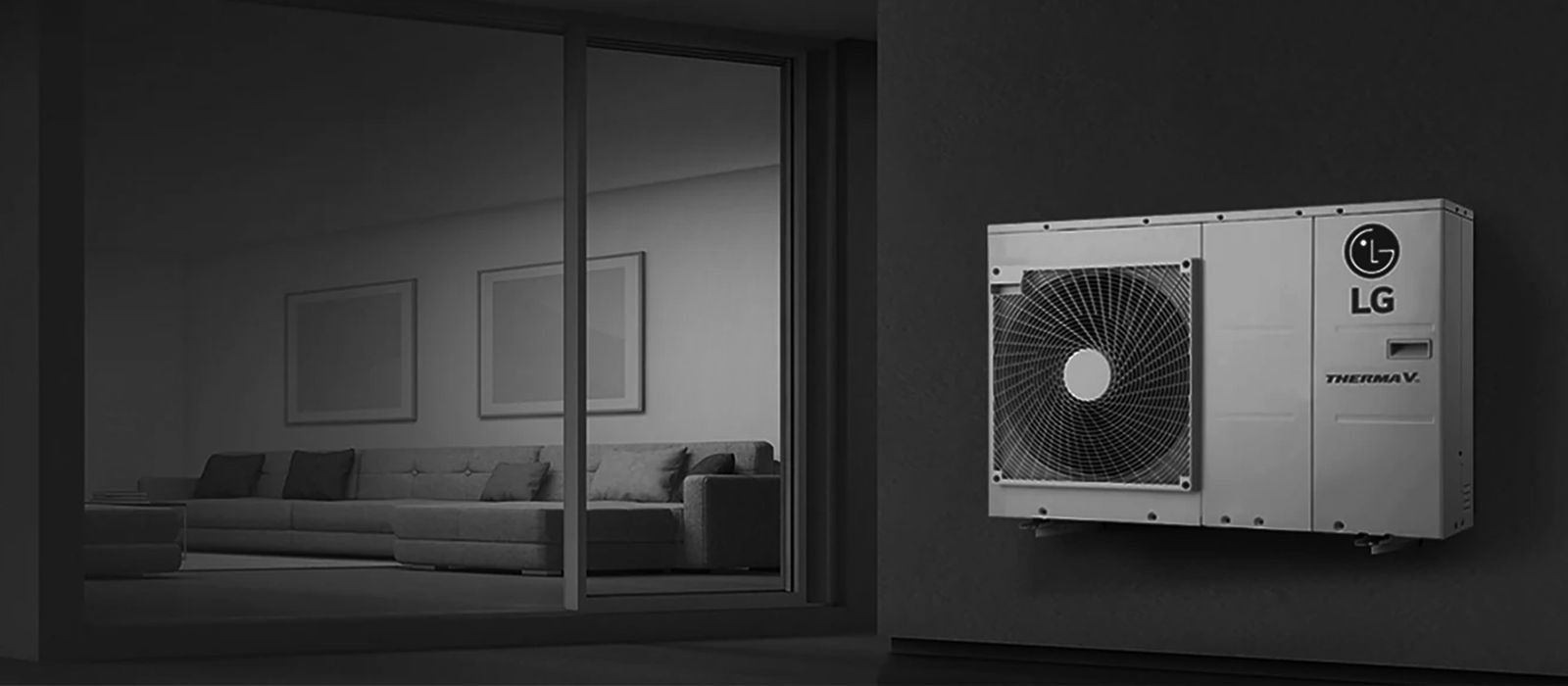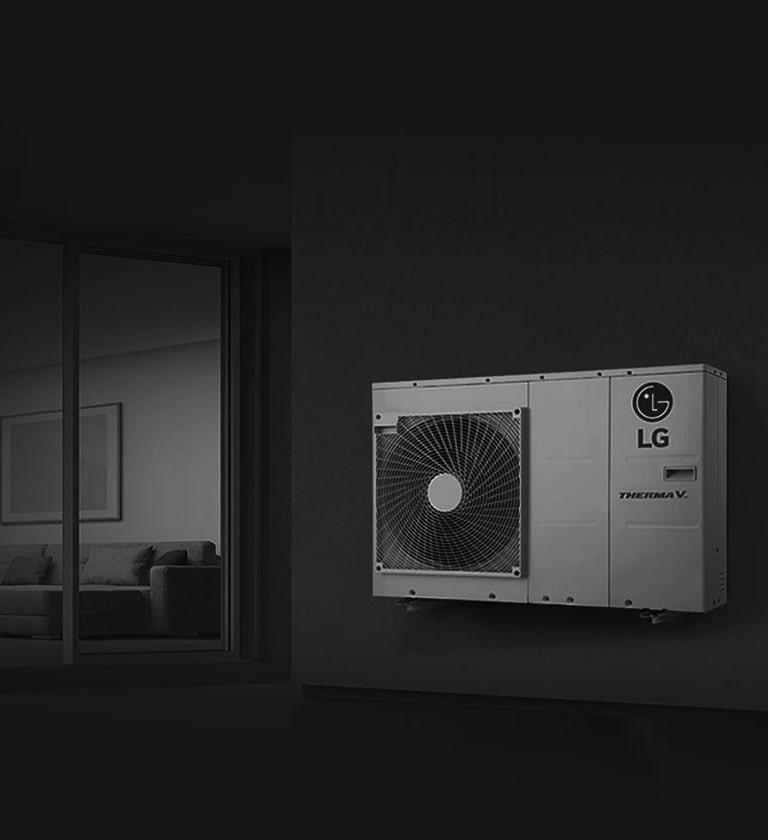-
The majority of energy consumed in a home is consumed to provide heating and hot water. And as much as 70% of energy used for heating and cooling in Europe comes from fossil fuels. While fossil fuels provide us with a source of heat, the use of fossil fuels is impacting the environment through the emission of greenhouse gases such as CO2. Recent global trends are also causing fossil fuel prices to increase. As you begin to prepare for winter in the coming months, you may have concerns about your heating solution and how you can reduce your impact on the environment while reducing energy costs. Heat pumps may provide you with a solution to these concerns. In this article, we will look at what a heat pump is, how efficiently they operate, how they are better for the environment and how much you can save when opting for a heat pump solution.
*https://www.euractiv.com/section/energy/news/heating-neglected-in-eu-plan-to-ditch-russian-fossil-fuels-industry-says/
*https://www.iea.org/fuels-and-technologies/heating
-
What is a Heat Pump?
Most homes burn fuel or convert electricity to heat for heating. Heat pumps also use electricity. However, thanks to their simple structure and powerful operation, heat pumps use considerably less electricity to accomplish the same goal. Heat pumps are able to extract as much as 75% of the energy they consume from ambient air or geothermal energy and only use 25% electricity. This is why heat pumps have become eco-conscious solutions that can replace systems that use fossil fuels for hot water and heating.
*Each ratio is general to help in understanding this topic and it is based on COP (Coefficient of Performance)
*Please note that the actual SCOP of THERMA V R32 Series is higher than 4 under Low Temperature & Average Climate conditions. The actual efficiency may vary with water and outside temperatures.


-
One common misunderstanding about heat pumps is that they can only be used for heating and hot water. But they can be used for cooling as well. Heat pumps work just like air conditioners. They remove heat from indoor air to make the air indoors cooler.
-
What is an Air-source Heat pump?
There are several types of heat pumps. Heat pumps are classified according to their functionality and the source from which heat is absorbed. The most prominent heat pumps on the market are air-sourced heat pumps, such as air-to-water heat pumps and air-to-air heat pumps. Air-source heat pumps are also sometimes referred to as air-to-water heat pumps.
Air-to-water heat pumps collect heat from the outside, then transfer it to water. The water that has been warmed is then distributed to radiators or underfloor heating systems. Heat that is generated in the heat pumps is transferred to the water in the system. This hot water is then stored in the hot water cylinder and provided to the house through faucets, showers, and baths.
Air-to-air heat pumps can also be switched to provide heating or cooling, but they do not provide hot water.
-
How does a Heat Pump Work?
Heat naturally moves from warmer places to colder places. Typically, in winter, outdoor air is colder than indoor air. But how can a heat pump provide heat from outdoors when the air outdoors is colder? To understand this, let’s look at the most common type of heat pump in the air-source solutions.


-
First of all, we need a refrigerant through which the heat will travel throughout the system. Heat from the outdoor air is absorbed into the evaporator and transferred to the refrigerant, even when it is cold outside. This is because even when outdoor temperatures are cold, there is still a good amount of energy that can be extracted from the air to be delivered into a building. For example, the heat content of air at -18°C equates to 85% of the heat contained at 21°C. Through this scientific process, the refrigerant receives heat from outdoor air and moves it into the house to provide heating and hot water.
Then, the compressor in the heat pump uses electricity to compress the refrigerant and the temperature of the refrigerant increases. The compressed, high-temperature refrigerant becomes a gas and moves to the condenser, where heat from the gas refrigerant is transferred to water. When the heat is released in the condenser and expansion valve, the gas refrigerant cools and changes back into a liquid. As this process is repeated, the heat pump provides heating and hot water indoors. This process can also be reversed to remove heat for cooling in summer.
-
How Efficient is a Heat Pump?
How much more efficient are heat pumps than traditional boilers? Even though boiler efficiency has improved over the years, most top-performing boilers are between 90% and 94% efficient, with some of their heat being emitted and lost through the fuel pipes. In comparison, heat pumps are up to 400% efficient, meaning users will benefit from about 4 times more heat from each kW of electricity.


-
The efficiency of a product is indicated by labeling that differs by region. In the EU, energy efficiency classes are divided into 7 levels expressed as letters, with G being the worst and A being the best. Colors are also used to reinforce these levels, with red representing poor performance and green representing maximum efficiency. In addition, certain products, including heat pumps, can also be given A+, A++, and A+++, to indicate even further energy savings. The LG Therma V R32 series is labeled as an A+++ energy saving product. This means that it is able to efficiently heat a home and provide hot water year-round.
*Energy Label is based on COMMISSION DELEGATED REGULATION (EU) No 811/2013 and LG Therma V R32 series reaches the energy label ERP A+++ for space heating at 35°C LWT and ERP A++ for space heating at 55°C LWT. The results of the energy label may vary depending on the LG Therma V model. Please refer to LG Compliance Information homepage
(https://www.lg.com/global/support/cedoc/cedoc) to check each model.
-
In terms of energy efficiency, there is another point to consider. Heat pumps work best in warm or moderate climates. Generally, as the temperature becomes colder, heat pumps can decline in performance and efficiency. Nonetheless, LG heat pump solutions are capable of providing heating in temperatures as low as -25°C.
*Outdoor temperature range for heating mode indicated in operation range of the PDB (Product Data Book). However, in general, when the outdoor temperature is lower, the capacity, efficiency, and maximum water outlet temperature at that outdoor temperature will also be lower than normal outdoor temperature operation.
-
How Much Can You Save with an Air-Source Heat Pump
How much does a heat pump cost to operate? Let’s look at an example based on averages in France. An air-source heat pump can produce 4kWh heat output for every 1kWh of electricity supplied. If we say, for example, that the average heating demand for a 4-person home (100m2) using only electricity is about 16,000 kWh, the cost to heat a home for this demand with electricity at € 0.16 would be € 2,560. With a heat demand of 16,000 kWh and a heat pump output of 4kWh per 1kWh of electricity, this shows us that we need about 4,000 kWh of electricity to heat the average home with a heat pump. At a cost of € 0.16 per unit of electricity for 4,000 kWh, the annual heating costs of a heat pump would be around € 640.


-
Source: https://www.choisir.com
*These figures are used as an example of how much savings are possible with a heat pump. Results may vary depending on heat pump type and energy prices in your region.
*Calculations based on heating systems powered by electricity.
As gas prices have risen as much as 50% from 2021 to 2022 in EU markets such as France, moving away from a gas boiler only makes sense. In that same time frame, the cost of electricity increased only 6% in the French market. Operating a heat pump can lead to significant savings in the long run over a gas boiler.
*Data for electricity and gas prices are based on prices quoted by the French energy company, ENGIE, on March 1, 2022.
-
How Eco-Conscious is a Heat Pump?
How much better is a heat pump for the environment? Heat pumps can reduce CO2 emissions compared to gas boilers by 35-65%. According to the European Heat Pump Association (EHPA), heat pumps contribute to a reduction of over 9 million tons of CO2 emissions in the EU alone. The impressive efficiency provided by heat pumps also reduces the consumption of electricity. This reduction in electricity consumption reduces the amount of fossil fuels needed for the generation of electricity. One of the most effective ways for an individual to combat climate change is to switch from a traditional boiler to a heat pump. In some regions, air-source heat pumps are certified as new and renewable energy sources and can help in meeting requirements for NZEB regulations. Heat pumps can also be coupled with renewable energy sources such as solar or wind turbine power to almost eliminate carbon emissions.
*https://www.ehpa.org
*https://www.ehpa.org/technology/key-facts-on-heat-pumps/


-
Source: https://waermepumpe-bwp.de/co2-neutral-heizen
*Each ratio is general to help understanding, and it is based on COP (Coefficient of Performance) 4 and SCOP of THERMA V R32 Series under Low Temperature & Average Climate conditions is higher than 4. The actual efficiency may vary with water and outside temperatures.
*Exemplary figures from Germany, 2020; 4 persons, 200m2 flat and sourced from BWP (German Heat Pump Association)
*https://www.boilerguide.co.uk/articles/boilers-vs-heat-pumps-which-is-bestyou’re your home#:~:text=Most%20top%20gas%20boilers%20are,electricity%20the%20heat%20pump%20uses
Are you familiar with Global Warming Potential (GWP)? GWP was developed to allow comparisons of the global warming impacts of different gases. The larger the GWP means, the more the given gas warms the Earth compared to CO2 over the given time period. Eco-conscious refrigerants such as R32 used in some heat pumps solutions can reduce the Global Warming Potential (GWP) by as much as 68% over the commonly used refrigerant, R410A. These factors not only ensure eco-conscious products, but also help users comply with government regulations concerning the impact their products have on the environment.
Heat pump solutions are beneficial for society and the environment. They not only help users save money, but also reduce the effect heating and cooling has on the planet. Keep a look out for upcoming articles on our blog for more information about efficient heating solutions.
Please click the 'INQUIRY TO BUY' banner below to contact your local LG office for further information on solutions and products.







